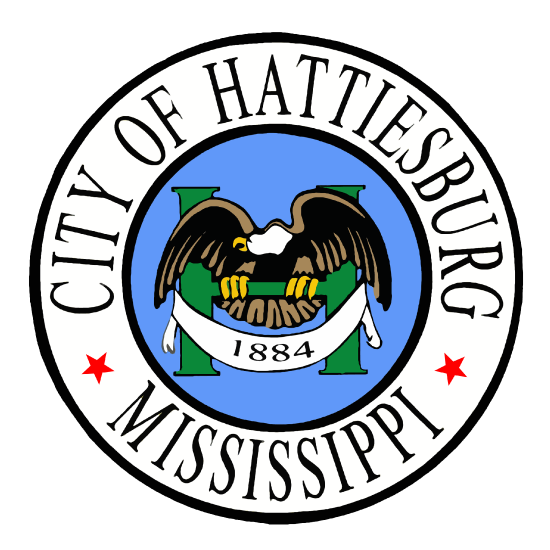Hattiesburg, Mississippi – On Wednesday, August 26, the City of Hattiesburg entered into a consent decree with the US Environmental Protection Agency (EPA) and the Mississippi Department of Environmental Quality (MDEQ) to significantly reduce sanitary sewer overflows (SSOs) and to improve the overall operations of Hattiesburg’s sewer system.
The consent decree – a 16-year improvement plan – accompanies a lawsuit by the EPA after seven years of negotiations, which began in September 2012 when an EPA inspection report notated unreported SSOs.
SSOs are a by-product of aging infrastructure and is common in cities like Hattiesburg in age and size. When sewer infrastructure ages, leaks in pipes can occur, allowing for stormwater to infiltrate the sewer system. Failures occur during heavy rain events when there isn’t enough capacity in the system for the high volume of both stormwater and wastewater.
These failures result in SSOs, and they pose a potential threat to public health, the environment and the economic vitality of a city. The occurrence of an SSO is a direct violation of the Clean Water Act, and are required to be reported to the regulatory agencies.
In 2013, the City was propelled into the negotiation process to identify a strategic path forward for both programmatic and infrastructure improvements – with the goal of reducing the inflow and infiltration (I&I) of stormwater into the City’s wastewater collection system.
It wasn’t until November 2017, however, when the City self-reported that there were approximately 900 unreported SSOs between January 1, 2012, and September 30, 2016. Because of self-reporting, Hattiesburg was able to avoid additional civil penalties. These penalties are often assessed per each unreported SSO.
Throughout the negotiation period, the City also completed:
- Approximately $25 million in sewer rehabilitation and remediation projects through its Comprehensive Sewer and Water Improvement Program (ComSWIP).
- Extensive investigation of the gravity sewer system.
- Improvement of the sewer mapping system.
Under the consent decree, the City will continue the proactive practices established during the negotiation phase and will also comply with the following programmatic improvements:
- Establishing better SSO reporting practices, which includes a sanitary sewer overflow reporting program (SORP), an emergency response program (ERP) and a chronic SSO advanced remote monitoring program.
- Modernizing and streamlining management of the City’s infrastructure, personnel and equipment. This includes an information management system program and a sewer mapping program.
- Developing proactive and preventative operations and maintenance (O&M) practices for the wastewater collection system. This includes O&M programs for gravity sewer systems, pump stations and fats, oil and grease (FOG) controls.
- Assisting in the development of the City’s employees through the establishment of a comprehensive training program.

The City will also comply with an aggressive schedule for the rehabilitation and remediation of the wastewater collection system through a 16-year investment in infrastructure upgrades. This includes investigation, project and budgetary planning, construction of Early Action Projects and the implementation of O&M programs throughout 32 distinct sewer basins – which have been identified as priority areas for this decree (see figure a).
Compliance with the requirements of the consent decree is estimated to cost approximately $45 million, and the timeframe for completion of work is 16 years. Water and sewer projects are funded through a dedicated budget source that stems from residential and commercial water and sewer utility collections.
“To our citizens, I want to make sure you know that we’ve spent the last three years fighting for our city and to diligently right both infrastructure and programmatic failures of the past,” said Mayor Toby Barker. “This consent decree will serve as a road map to improve our sewer services so that they are in compliance with all federal and state regulations while maintaining our bold commitment to the momentum and economic development of our city.”
Additional penalties associated with this consent decree include one lump sum of $165,000 for the City’s initial violation of the Clean Water Act. It is also coupled with the City’s performance of a Supplemental Environmental Project (SEP), expending at least $220,800 within 48 months following the effective date of the decree.
SEPs allow for an investment (with landowner approval) into replacing defective private sewer laterals and illicit connections from residential properties where the owners of which face financial hardship.
Barker added, “I can’t commend our team enough – from engineers and legal to our directors – for the role they played in getting to today. Proper upkeep of a sewer system is an expectation of any thriving municipality. We’re proud of the steps we’ve taken to mitigate this issue, and we stand committed to seeing the plan to fruition.”
With a consent decree, there is a 30-day comment period for the public to provide feedback before it will be signed by a judge.
##
ACCOMPANYING DOCUMENTS
- 2012 EPA Report
- Complaint
- Consent Decree
- Consent Decree Appendix A
- Consent Decree Appendix B
- Consent Decree Appendix C
- Consent Decree Priority Areas Map
- Residential FAQ
VIDEO OF PRESS CONFERENCE
PHOTOS





